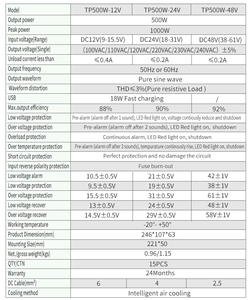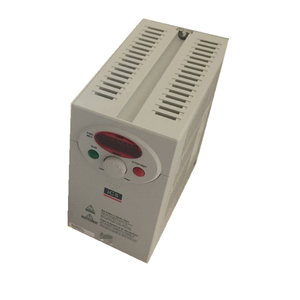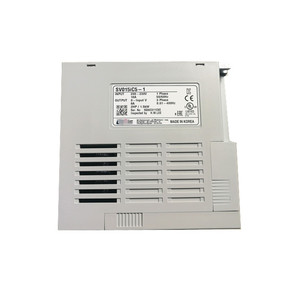(999 products available)


























































































































































































































Inverters are crucial for converting DC power into usable AC power, especially for those who rely on battery or solar systems. The variety and quality of DC input inverters available greatly affect the efficiency and reliability of these systems.
These inverters enable electricity usage when isolated from utility power grids. Typical off-grid users include remote homes, cabins, or work sites.
Commonly used in North America, split-phase inverters generate 120V and 240V outputs simultaneously. They are suitable for users requiring diverse voltage levels for various appliances, like farms or workshops needing both small and industrial machinery.
Enhanced high-quality DC input inverters facilitate the conversion of DC power to smooth sine wave AC power, replicating grid electricity. This capability is particularly vital for sensitive equipment like medical devices or data servers in unstable grid areas.
These inverters connect directly to utility grids, allowing excess generated power (e.g., from solar panels) to be fed back to the grid. They are suitable for urban users who desire reduced utility reliance.
AC power is converted into DC power and stored in batteries for future use when the grid fails. This setup is ideal for businesses or institutions, e.g. schools requiring uninterrupted power during outages.
Compared to traditional inverters, these smaller devices are attached directly to solar panels. This design allows individual panel monitoring and optimization. They are beneficial for residential settings with roof-mounted, unevenly illuminated solar arrays.
These should only be utilized when the grid is available and unavailable. They manage live grid power, battery storage, and solar energy usage, making them perfect for consumers wanting daytime solar use while keeping battery reserves for night-time use.
Following are some important developments in the DC input inverter industry:
This technology allows forResolvers to process energy with minimal loss and provides more options for electric vehicles, public transport, and industrial machinery. This innovation is likely to expand the demand for DC input inverters.
Inverters now support quick charging for electric vehicles and battery storage solutions, ensuring EVs reach full charge in less time, boosting urban areas where EVs are common.
Sophisticated software solutions will optimize the operation of DC input inverters by predicting energy production and consumption patterns, leading to enhanced system performance.
Due to EVs and large battery systems, safety measures for high-quality DC input inverters will need development, paying attention to fire prevention and dealing with lithium-ion battery failure.
As EV adoption increases, demand for inverters that efficiently link vehicle batteries to charging systems and home energy grids grows. This development offers an important new market for DC input inverters.
Inverters that function with flexible batteries will be vital in wearable and portable gadgets. In particular, life-monitoring health care devices and portable consumer electronics will find this crucial.
The key specifications of these inverters include power output, voltage range, and efficiency. High efficiency means that the inverter wastes less power when converting DC to AC, which is important for renewable energy systems like solar power.
Wall mounting or locating in a dedicated room for installations of larger commercial inverters is typical. Important parameters include the inverter's DC input voltage range and operating frequency.
These inverters convert DC power into a higher AC voltage. They switch transistors on and off in a specific order to shape the DC signal into an AC waveform using a transformer. Off-grid systems store energy in batteries for later use, while grid-connected systems feed excess power back to the grid with the help of battery backup.
High-quality DC input inverters are used in remote buildings without grid power, commercial premises needing backup power, and residential/industrial sectors relying on solar for primary energy. Their usage is also rapidly increasing in electric cars and high-capacity battery applications.
The maintenance of these systems involves periodic checks for ventilation, live electrical components, external damage, and appropriate wiring. Firmware updates may be needed for repairs in this high-tech world. Broken inverters may have their internal elements replaced, or outside components may be repaired or replaced entirely.
The type of DC input inverter requested would depend on whether buyers were focusing on their residential solar business or industrial units. Those in residential solar should prioritize hybrid or grid-tied inverter availability. In contrast, heavy industries would need robust battery backup inverters that could handle huge voltages and currents.
It's critical to ensure that the inverter is within the client's budget range. An effective inverter at a lower cost will be less profitable if there are constant issues with firmware or hardware compatibility during installation.
A strong warranty covering parts and labor and an in-depth manufacturer support policy add to the confidence level in the product. Both large commercial clients and residential end-users would be sensitive to these important factors.
Assessing the end user's profession is important because their level of technical expertise determines how complex the equipment may be. Knowledgeable industrial users may work with high-tech inverters with many configurable options, but the average homeowner may want simplicity.
For example, inverter manufacturers are beginning to create solutions with built-in AI to minimize power consumption based on user habits. Grid instability may also increase the requirement for battery backup inverters that automatically switch to stored power during outages.
A. Several sectors design these inverters into their energy systems, including renewable energy, electric vehicles, and telecommunications. They handle the load of variable DC sources, converting that power into stable AC for broader application.
A. Power capacity, efficiency rates, and operating voltage range are primary specs that will impact overall performance in various conditions. Advanced features such as MPPT can draw the maximum power from DC sources, like solar panels.
A. The growth of electric vehicles and renewable energy systems are driving innovation in inverter technology. There is an increased need for inverters capable of handling higher voltages and more complex operating conditions due to these developments.
A. Inverters are built using components like semiconductors, control circuits, and transformers, which allow DC power conversion to different AC frequencies and voltages.
A. The inverters convert direct current from many sources, such as batteries and solar panels, into alternating current for effective use across numerous applications, including industrial, commercial, and residential settings.